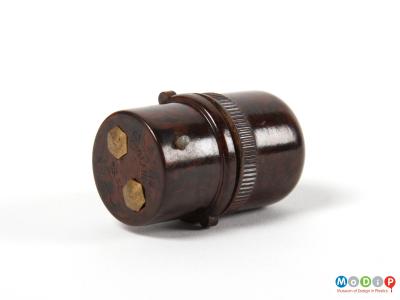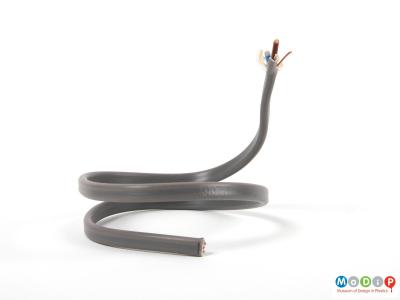Some plastics are used in particular everyday applications because of their excellent resistance to the transfer of heat and electrical current.
Bakelite, phenol formaldehyde, the first wholly synthetic plastic, was sold to the public as the material of 1000 uses, and was most likely to appear in the domestic environment in the guise of electric light fittings (1), sockets, and plugs (2), and knobs and handles of everyday objects such the those of irons (3) and kettles (4) or the knobs and switches on radios. Phenol formaldehyde is an excellent insulator against heat and a very poor conductor of electricity. It is a thermosetting plastic which undergoes a chemical change in its production resulting in it becoming permanently rigid even when subjected to high temperatures. It is designed to withstand high heat without melting or warping.
Silicone based plastics have become popular in kitchen-wear as it is less prone to chipping, is flexible and has a comfortable, soft feel in use. It is able to withstand very high temperatures and is commonly used in the production of baking pans, the soft grip handles on utensils and for protective oven gloves (5).
Phenol formaldehyde was the material of choice for this domestic fuse box (6). It is robust and a very poor conductor of electricity as is the high impact material from which the casing of the industrial connector (7) is moulded. The inner metal core of the electric cable is made safe by wrapping it in flexible PVC which protects it and prevents the conduction of electric current across the wires (8).







